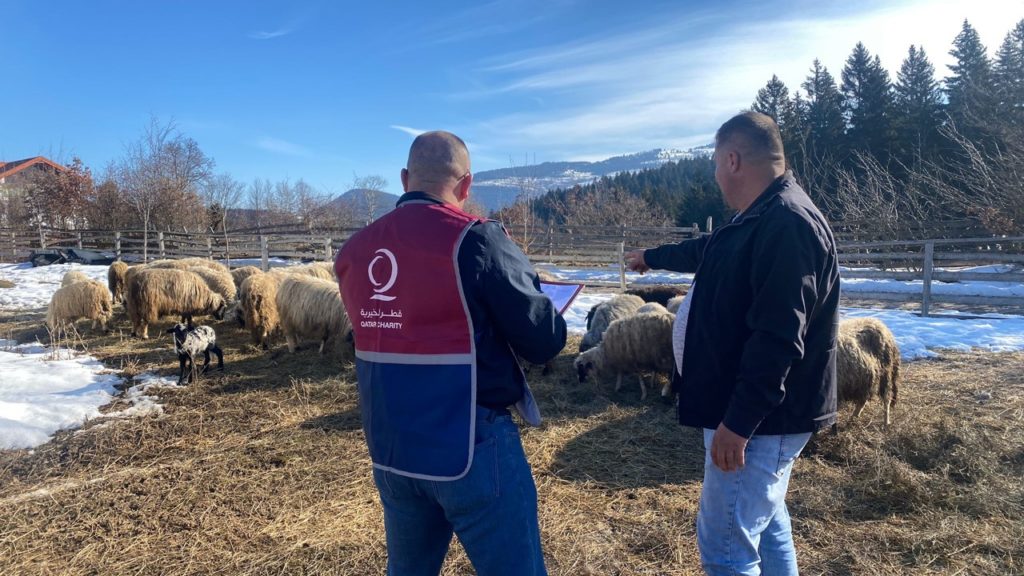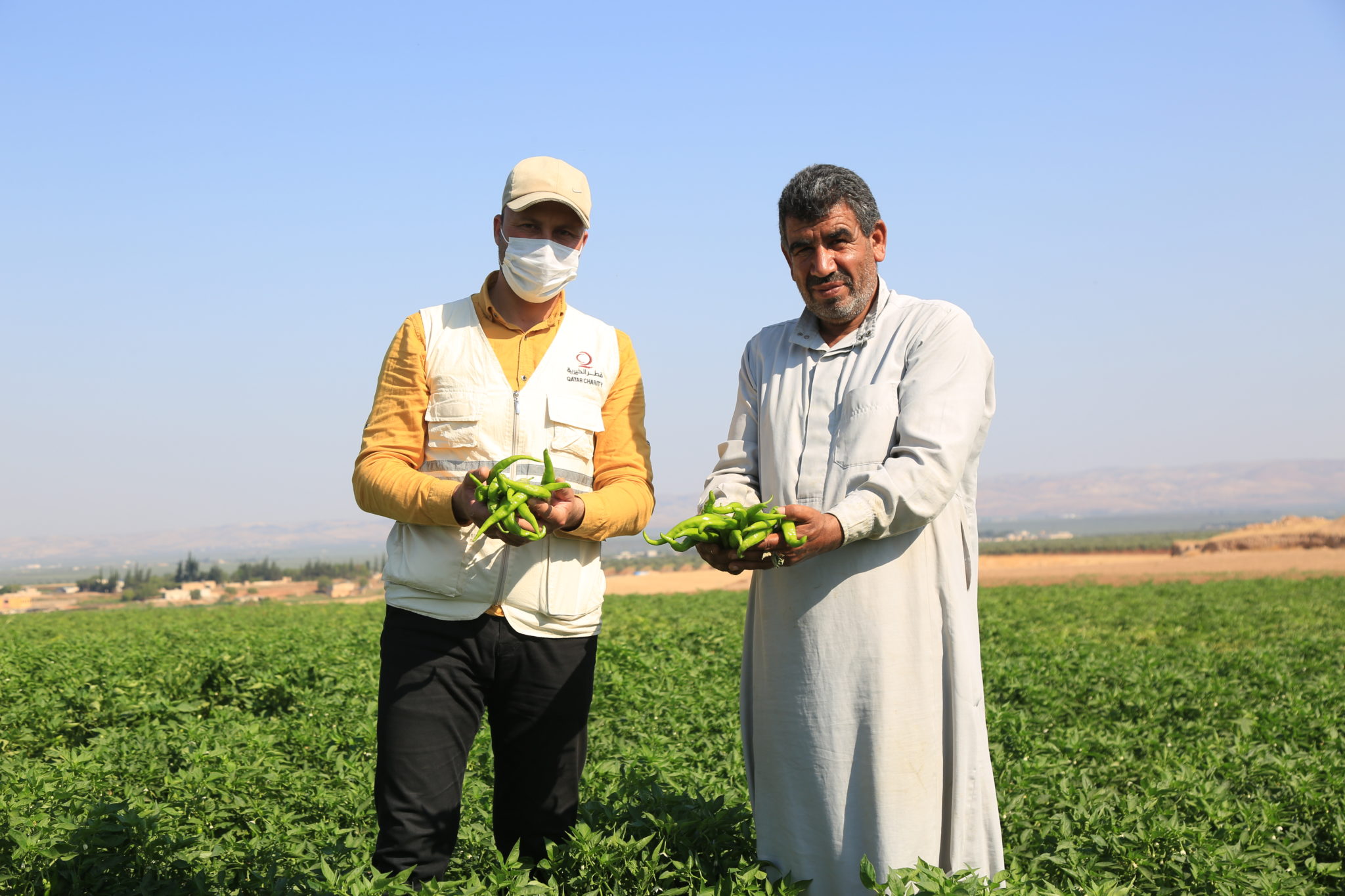Qatar Charity’s CHS verification insights
In the realm of humanitarian and development work, our goal is not only to provide support but also to ensure that every interaction is delivered effectively, responsibly and respecting the dignity of all involved. That’s why, at Qatar Charity, we have long recognised the importance of aligning all that we do with the Core Humanitarian Standard (CHS).
Embracing the CHS Alliance network
Our decision to join CHS Alliance stemmed from a deep commitment to enhancing the quality of our humanitarian and development work for the people we serve. We wanted to make sure that our efforts were tailored to the actual needs of the people we serve.
To do this, we knew we needed to evaluate our organisational policies and procedures against a universal framework that measures what people affected by crisis want – the CHS – and become part of a network that would help us meet the commitments – CHS Alliance.
Driving change and seeing improvements
After joining CHS Alliance, we started with the CHS self-assessment to measure how well we applied the CHS. Organisations undertake self-assessment internally, using online surveys developed by CHS Alliance to collect information, document evidence and present results.
Over the course of assessing against the CHS we were privileged to hear from 140 people who use our services, more then 200 staff and 25 partners from 18 different countries. These included Qatar, Tunisia, Sudan, Somalia, Syria, Pakistan, Malaysia, Ivory Coast, Bosnia, Turkey, Kyrgyzstan, Bolivia and Belgium. This incredible variety of perspectives helped us gain a holistic view of how well we were performing against the CHS and where we needed to improve.
Overall, Qatar Charity scored well across the self-assessment, which helped evidence our commitment to applying quality and accountability principles to our work. The process also revealed some areas we could strengthen to better meet the CHS.

Qatar Charity surveying a project participant in Bosnia. Credit – Qatar Charity.
Here are the top three learnings from our CHS self-assessment and how we are using these to improve how we treat the people we help:
-
Timeliness:
One area where we found we could do better was with taking and acting on decisions quickly. We saw that in some cases, our staff might not identify potential issues at the planning stage, which could limit our ability to deliver later, and how quickly people receive support.
To overcome this potential weakness, Qatar Charity is now integrating early warning systems and contingency plans for all our programming. We are also updating our urgent relief policy to stipulate that the response is carried out in a set time frame (between 48 to 72 hours), as well as creating ways to mobilise funds faster for sudden emergency projects.
-
Complaints:
Like so many of our peers, commitment five was our overall lowest-scoring commitment. We found that this reflects gaps in our existing complaints handling processes. While we had a complaints policy and mechanism in place, it was not focused enough on the community or project participant level. This left some people without a clear mechanism for providing feedback or raising concerns.
Although communities generally reported being satisfied with opportunities to provide feedback and complaints, it was unclear if they fully understood the communication process. This finding underlines why the CHS self-assessment has been so helpful as it uncovered an important gap in our knowledge.
Since creating our improvement plan, we have started to establish new communication channels with local communities by holding periodic focused discussion sessions to gather feedback with groups including people like a village mukhtar or mosque imam. We are also creating a unified platform for complaints management accessible for each country office, as well as implementing a better way to track the progress of complaints, ensuring they are responded to within the expected response time.
-
Building local leadership:
It was great to find out that our partners’ overall satisfaction score with us was 88%. Especially as 80% of partners surveyed were national or local NGOs.
However, the CHS self-assessment did uncover a weakness in our approach to developing local capacity and empowering local leaders to increase resilience. We also found that less than 54% of our partners reported that the partnership agreement included detailed information on how communities should participate in different stages of programming.
In response, we are now prioritising the involvement of local NGOs in project design and implementation and ensuring that increasing disaster preparedness skills are integrated into project planning. We will regularly follow-up and support our local partners to help them continue developing and maintaining their disaster preparedness skills over time.
We are also reviewing our partnership policy to include precise guidance on communities’ participation in all different stages of the project.

Qatar Charity visiting a project participant in Pakistan. Credit – Qatar Charity.
The difference being a CHS Alliance member makes
Being a member of CHS Alliance has been instrumental in this journey towards better meeting the CHS in our work. The Alliance has provided invaluable guidance and resources, enabling us to both measure and now improve the quality of our efforts. For example, CHS Alliance’s Managing complaints package. The package contains a best-practice guide on responding to complaints, a practical toolkit with templates and an accessible e-learning.
A message to fellow organisations
We encourage our peer organisations to verify against the CHS and join CHS Alliance.
The CHS is the universal framework for making aid work the way crisis-affected people want. The guidance, resources and support offered by the CHS Alliance network are indispensable to improving ways of working and ensuring that crisis-affected individuals receive support with dignity and respect.
